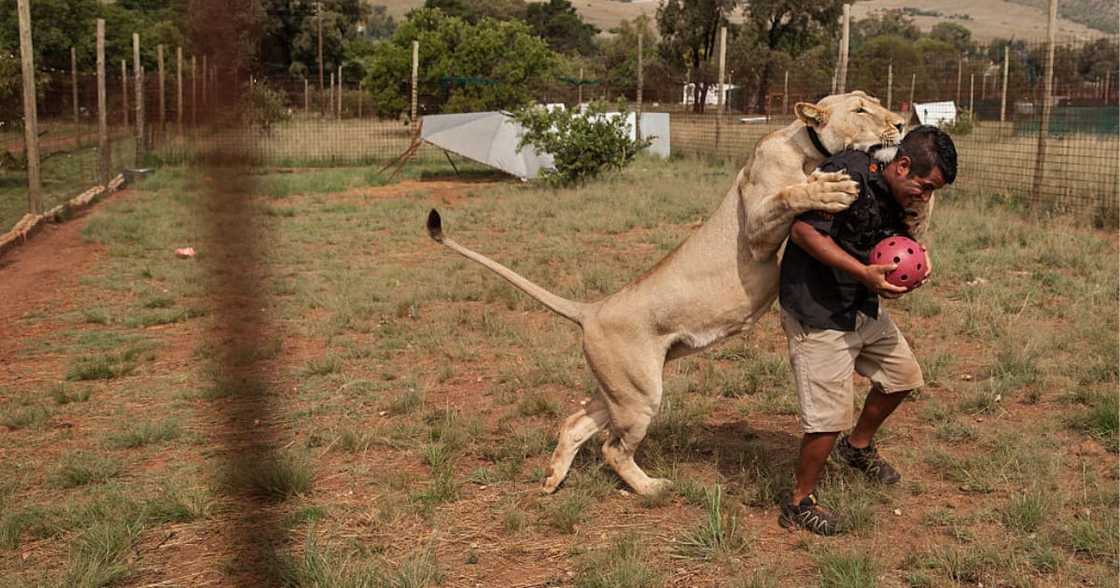Lions Contract 'Severe' Covid 19 From Zookeepers, SA Warned of New Variant
- A pride of lions are reportedly exhibiting serious Covid-19 symptoms at a zoo in Tshwane
- The lions are thought to have contracted Covid-19 from zookeepers, who'd been experiencing bouts of the virus at the facility
- Scientists have determined the Covid-19 virus could mutate in mammals and once again be passed onto humans
PAY ATTENTION: Click “See First” under the “Following” tab to see Briefly News on your News Feed!
TSHWANE - A group of Lions and pumas have been infected with Covid-19 at a zoo in Tshwane after the virus was passed onto the animals by zookeepers who weren't displaying any symptoms.
Studies carried out by a local tertiary institution indicated the emergence of possible new Covid-19 variants from animal sanctuaries. According to a TimesLIVE report, a 2020 research article showed that the droppings from a pair of pumas that had diarrhoea and anorexia, among other things, showed the animals had Covid-19.

Source: Getty Images
However, according to the University of Pretoria, the cougars made a full recovery after nearly one month. Since then, amid the country's third wave of the Covid-19 pandemic driven by the delta variant, three lions tested positive for the coronavirus.
Of the three large cats, one was infected with pneumonia. While the prevailing theory suggests the coronavirus spread from animals to humans, the newest studies showed the converse is also possible.
PAY ATTENTION: Never miss breaking news – join Briefly News' Telegram channel!
Health protocols should be followed
BusinessTech reported that zoo staff were hard hit by infections at the time of the lions' illness, making it likely the virus was transferred to the felines in this way. However, on the flip side, the virus could mutate in mammals and once again be passed onto humans, the research suggested.
The researchers said measures, including observing the basic health protocols such as the wearing of masks and infection control when dealing with captive animals, are advisable. Marietjie Venter, a professor at the university, emphasised the importance of following the advice.
"Everyone should exercise the responsibility of protecting endangered species from getting infected and dying. These measures are also important due to the risk of new variants emerging if the virus establishes itself in other animal pools," said Venter.
New local study indicates Omicron less severe
Elsewhere, Briefly News recently reported that a new study informed by South African research and published on Friday paints a less grim picture about the Covid-19 Omicron variant than initially suspected.
Researches claim those infected with Omicron are less likely to succumb to the virus or even require hospitalisation than in the case with previous variants. The study was done by the NICD and is yet to receive peer review, TimesLIVE reported.
It compared more than 11 000 cases stemming from the first wave of Covid-19 infections with over 5 000 from the Omicron-driven wave reported in November in South Africa.
Source: Briefly News

